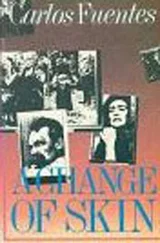What we do not have, we find in our friends. I believe in this gift and have cultivated it since childhood. In this sense, I am no different from most other human beings. Friendship is the first great link connecting the home to the outside world. Whether a happy or unhappy place, the home is the classroom where we learn basic wisdom, and friendship is the test of this wisdom. What we receive from our family, we confirm in friendship. The variations, differences, or similarities between our family and our friends will determine the contradictory paths our lives will take. And while we may love our home, we all inevitably reach for that unstable, restless moment of departure (even if we love it, even if we still remain in it). This departure from home can only be compensated by friendship. But it is more than that: without outside friendship, our internal foundations would crumble. Friendship does not challenge the family’s domain that rules the early years of life; on the contrary, friendship confirms it, supports it, makes it last. Friendship plants the seed for feelings that can only grow outside the home. Locked up inside the family domain, these feelings will dry up like plants without water. When we open the doors of the home, we discover forms of love that bring the home and the outside world together. These are called friendships.
Precisely because I believe in the value of friendship as a kind of initiation into life, as well as for the wisdom it imparts, I am struck by the philosophical cynicism that hovers over it like a dark cloud. Oscar Wilde uses his fearsome talent for paradox to declare that Bernard Shaw has not a single enemy in the world, but none of his friends like him either. For Byron, sadly, friendship is love without wings. And while friendship may blossom into love, love rarely blossoms into friendship. Friends, as conventional wisdom goes, should be welcomed with joy and dispatched with haste. And if the friend is a guest, after three days, like a dead fish, he will begin to emit a most foul stench.
I think there is more pain in lost friendships than in cynicism. The emotions confessed and shared. The illusion, confirmed by our friends, that we possess a shared wisdom. The strong backbone of hope that can only grow out of a childhood lived among friends. The joy of the gang, the posse, the brotherhood, la banda, l’équipe, la patocha. The bonds of unity. The complicity of childhood friendship, the pride of being young and, if one is young and already wise, the admonishing voice of youth when the friendship is an old one. We learn to govern the pride of youth. The day will come when we are no longer young, and when it does we will need our friends more than ever.
The era of youth opens the experience of friendship, and my “disk” remembers the names, the faces, the words, and the actions of my schoolmates. But the things I remember do not win out against those I have forgotten. How can I not celebrate the fact that, sixty years later, I am still in contact with my very first childhood friends. I had the kind of nomadic childhood that comes from being born into a family of diplomats whose constant pilgrimage resists any kind of sustained affection. Yet I still write to Hans Berliner, a German-Jewish boy who arrived at my elementary school in Washington after fleeing the Nazi terror and became the object of childish cruelty that lashes out against all that is different. He was dark-skinned and tall for his age, and like all European children in those days, wore short trousers. To the American children, he wasn’t “regular”—or, in other words, he wasn’t indistinguishable from them. For my part, I lost hold of my initial popularity when President Cárdenas nationalized Mexico’s oil wealth in 1938. For the first but not the only time in my life, I was suddenly suspected of being a Communist. Exclusion united us, Hans and myself, and we remain close to this day. Geography would soon separate us, but as an adolescent in Santiago de Chile I soon found my gang, my team, my chorcha, my patocha among the boys who preferred reading and debate to the rough, mud-caked sports of the Grange, our English school in the foothills of the Andes, governed by English captains convinced that the Battle of Waterloo had been won on the playing fields of Eton. I still remember all the names, all the faces — Page, Saavedra, Quesnay, Marín Stipec — but most of all I remember Roberto Torretti, my intellectual and literary companion. We wrote our first novel together. It ended up getting lost in one of Roberto’s mother’s old trunks, but to this day Torretti and I continue to write letters, meeting and talking in Oaxaca and Puerto Rico, as well as corresponding between Mexico and Santiago. He is an extraordinary philosopher, and our friendship always takes me back to those early years in that English school, to the play-acted adventures of two musketeers in the Mexican embassy palazzo, and it brings back other memories as well, some more distant and others more painful. That was where I met José Donoso, older than me, the future crowning glory of Chilean letters. I don’t know if he knew me. And in a previous school, I discovered the pain of having a close friend die at the age of twelve; it was my first experience of facing the death of someone my own age, and it left me shattered. I was equally devastated, however, by the fate of another little boy who was the object of ridicule and abuse because of his physical deformities. I dared to defend him, and came to discover another dimension of friendship: solidarity. After the coup staged by the atrocious Pinochet, that boy, who had since become a man, was tortured in the death camps in southern Chile, and while that fact intensifies the horror I feel when confronted with such human cruelty, it also intensifies the tenderness and compassion I feel for the true reality of friendship.
This is because all of us, to a greater or lesser degree, have betrayed or been betrayed by friendship. Gangs break up and close childhood friends can become the most indifferent, alienated ghosts in adulthood. And there is nothing quite so easily betrayed as friendship. If we were to make a list of all our lost friends, the footnotes would speak of indifference, hatred, rivalry, but also different epochs and epic distances. They would speak of deaths. Why did we abandon friends? Why did they abandon us? When you really think about it, there is very little friendship in the world. Most especially among equals. William Blake expressed it in these incomparable words: “Thy friendship oft has made my heart to ache: Do be my enemy for friendship’s sake.” Because while friendship, at its core, is a matter of disposition, generosity, willingness to spend time with others, it is also, at the very same time, a secret and insinuating rejection of that same intimacy when it is felt as dependency. Wordsworth speaks of the vernal hours of life during which we live in a kind of paradox that flings us down the path of fate yet at the same time shelters us from its accidents. Accidents, at times, of humor. Sargent went so far as to say that each time he painted a portrait he lost a friend. And George Canning, the legendary British foreign secretary, added a diplomatic twist to friendship—“Save me from the Candid Friend,” he implored. This is true: in both diplomacy and politics, to trust friendship is to take a great risk. In power, we find a concentration of laws that have the most definitive ability to destroy friendship. Betrayal. Remorse. Desertion. The field of dead bodies left behind by the use of abuse. The abandoned trenches left behind by the indifference of force. And always, the temptation of cruel humor. Malraux to Genet: “Que pensez-vous vraiment de moi?” (“What do you really think of me?”) Genet to Malraux: “Je ne vous aime assez pour vous le dire.” (“I don’t like you enough to tell you.”)
Читать дальше












